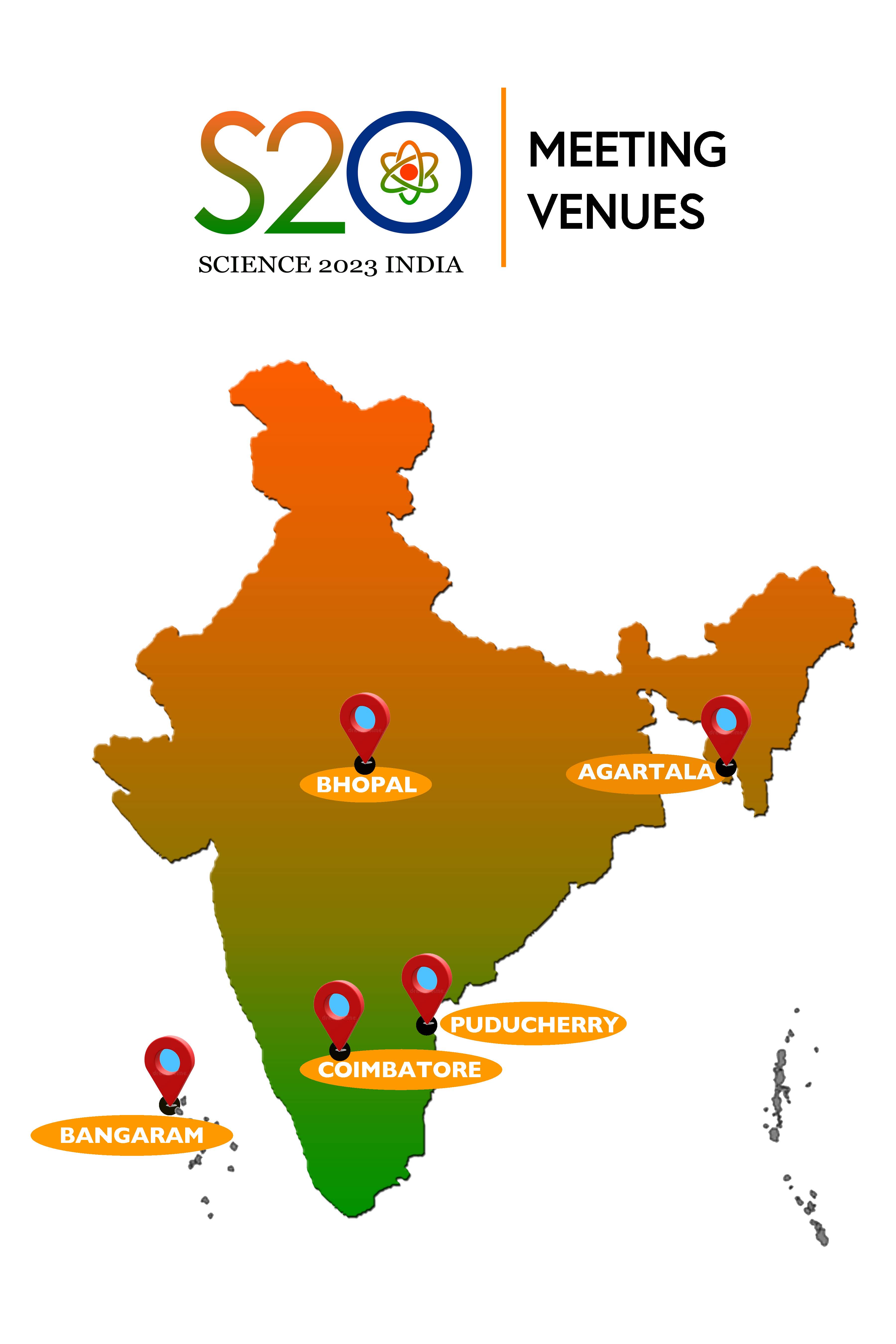26th December 2022
 The Group of 20, better known as G20, is an intergovernmental forum comprising 19 countries and the European Union. Consisting of both industrialised and developing countries, its main focus has been the governance of the global economy. Over the years, however, G20 has been working towards addressing other related global challenges as well, such as climate change mitigation and sustainable development. Towards this end, it has set up several working groups, one of which is Science 20 or S20.
The Group of 20, better known as G20, is an intergovernmental forum comprising 19 countries and the European Union. Consisting of both industrialised and developing countries, its main focus has been the governance of the global economy. Over the years, however, G20 has been working towards addressing other related global challenges as well, such as climate change mitigation and sustainable development. Towards this end, it has set up several working groups, one of which is Science 20 or S20.
The role of S20 in furthering the agenda of G20 is crucial. Science will have to play a key role if we are to achieve the economic growth required to pull millions of people out of poverty while ensuring that development is inclusive and sustainable. But scientific advancements alone are not enough. Meaningful development requires the cooperation of member nations so that experiences and breakthroughs in science and technology can be shared with each other. S20 is, therefore, an ideal platform to achieve this goal.
G20, along with S20 and other working groups, will be presided over by India in 2023. The theme of S20 for 2023 will be “Disruptive Science for Innovative and Sustainable Development”. Within this broad theme, the deliberations – to be held in different parts of India over the course of the year (Agartala, Lakshadweep and Bhopal) – will focus on three sets of issues: Universal Holistic Health, Clean Energy for a Greener Future, and Connecting Science to Society and Culture. The consultations will also include an Inception meeting in Puducherry and a Summit meeting in Coimbatore. The Indian Institute of Science (IISc) will be the Secretariat for S20.
India is uniquely placed to drive the agenda of S20 forward. Historically, this land has served as an incubator for ideas in different spheres of human life: political, social, economic, cultural and also scientific. The list of discoveries and innovations made over the centuries reveals India’s rich heritage of scientific inquiry – in architecture, astronomy, mathematics, medicine, metallurgy, textiles, ship building, town planning, textiles and more. For example, advances in chemical sciences many centuries ago allowed us to produce some of the highest grades of metals and alloys in the world.
With its intellectual heritage and current prowess in science and engineering, combined with a tradition of innovation with sustainability, India now has an opportunity to become a leader in disruptive science for development. The S20 summit is emblematic of India’s journey in forging a new path for advancement.
CONTACT:
Science 20 Secretariat
Indian Institute of Science (IISc)
secretariat.s20@iisc.ac.in



 The Group of 20, better known as G20, is an intergovernmental forum comprising 19 countries and the European Union. Consisting of both industrialised and developing countries, its main focus has been the governance of the global economy. Over the years, however, G20 has been working towards addressing other related global challenges as well, such as climate change mitigation and sustainable development. Towards this end, it has set up several working groups, one of which is Science 20 or S20.
The Group of 20, better known as G20, is an intergovernmental forum comprising 19 countries and the European Union. Consisting of both industrialised and developing countries, its main focus has been the governance of the global economy. Over the years, however, G20 has been working towards addressing other related global challenges as well, such as climate change mitigation and sustainable development. Towards this end, it has set up several working groups, one of which is Science 20 or S20.